Third Man, The (1949)
“I’ve done things that would have been unthinkable before the war.”
|
Synopsis: |
|
Genres:
Response to Peary’s Review: It’s actually hard to name just one element that contributes to this film’s success; as noted by Peter Bogdanovich:
Indeed, everything about this expertly crafted, finely acted film keeps one glued to the screen and the storyline — thanks in large part to consistently innovative cinematography, with action taking place on inherently atmospheric sets. The attention to period detail and overall ambience in this film is especially significant; this is not simply any old “murder mystery”, but rather one that’s inextricably entrenched within the unique milieu of a city split into fragments by various occupiers, its motley inhabitants dealing with the inevitability of post-war chaos, corruption, and mistrust. Lonely Martins stumbles into this unsettled setting, mourning the loss of a man he considers “the best friend he ever had” while falling hard for stunning beauty Valli (excellent in her most iconic role). Meanwhile, Howard’s cynical-realist policeman is perpetually on the sidelines, ready to remind Cotten what kind of man his friend Harry Lime really was. Countless memorable images stand out from The Third Man: “Holly being bitten by a parrot, Holly being chased by a little boy who’s telling everyone within earshot that Holly’s a murderer, Lime and Holly speaking while on a Ferris wheel, Lime being chased through the sewers, and in the finale, Holly waiting for Valli as she walks toward the camera”. Also notable are Holly’s disastrous (indeed, nightmarish and Hitchcockian) talk in front of an audience of “cultured” Brits ready to hear him expound on high-falutin’ literary topics; “Baron” Kurtz (Ernst Deutsch) playing violin at the Casanova Club while an overweight female sips soup right under his chin; the many scenes in which faces of random citizens are shown in crowded, close focus on the screen; Lee punching Holly and then, without missing a beat, politely helping him get back up. There’s no sentimentality here: as much as Holly may want to imbue his old friend with the glow of eternal loyalty, his idealized vision is broken down bit by bit, and there’s no happy ending in sight (though surely he has plenty of material to bring to his work as a novelist). Redeeming Qualities and Moments:
Must See? Categories (Listed in 1001 Movies You Must See Before You Die) Links: |
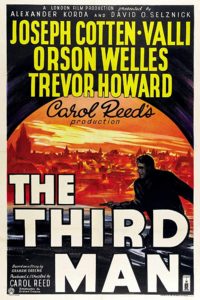
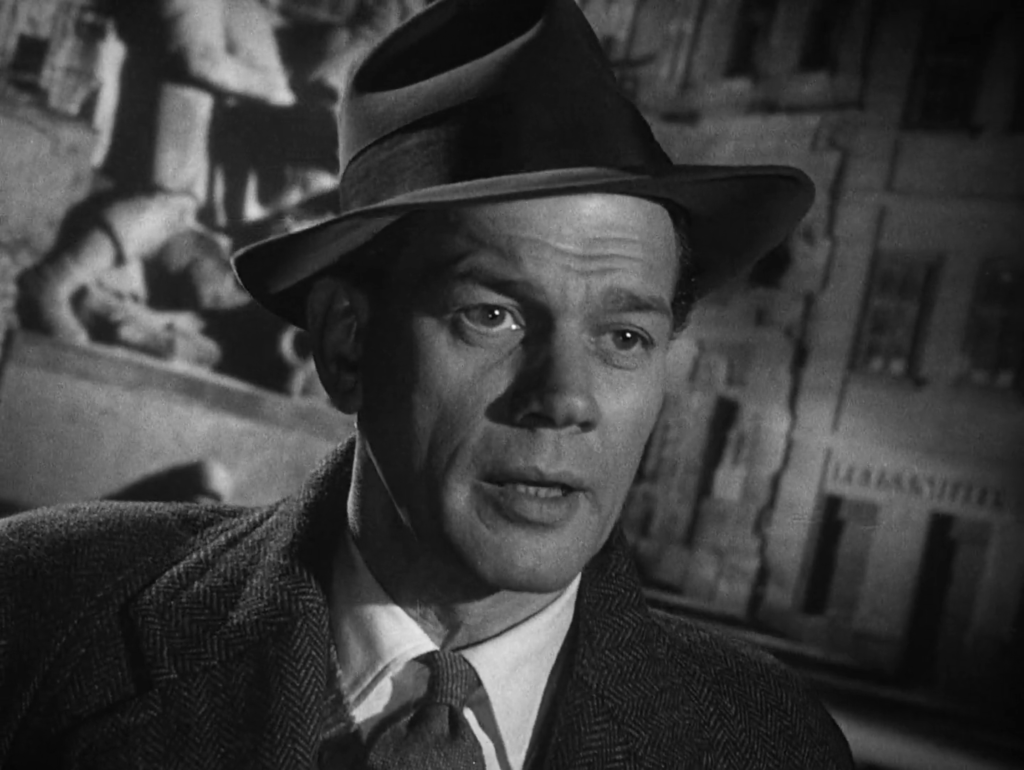
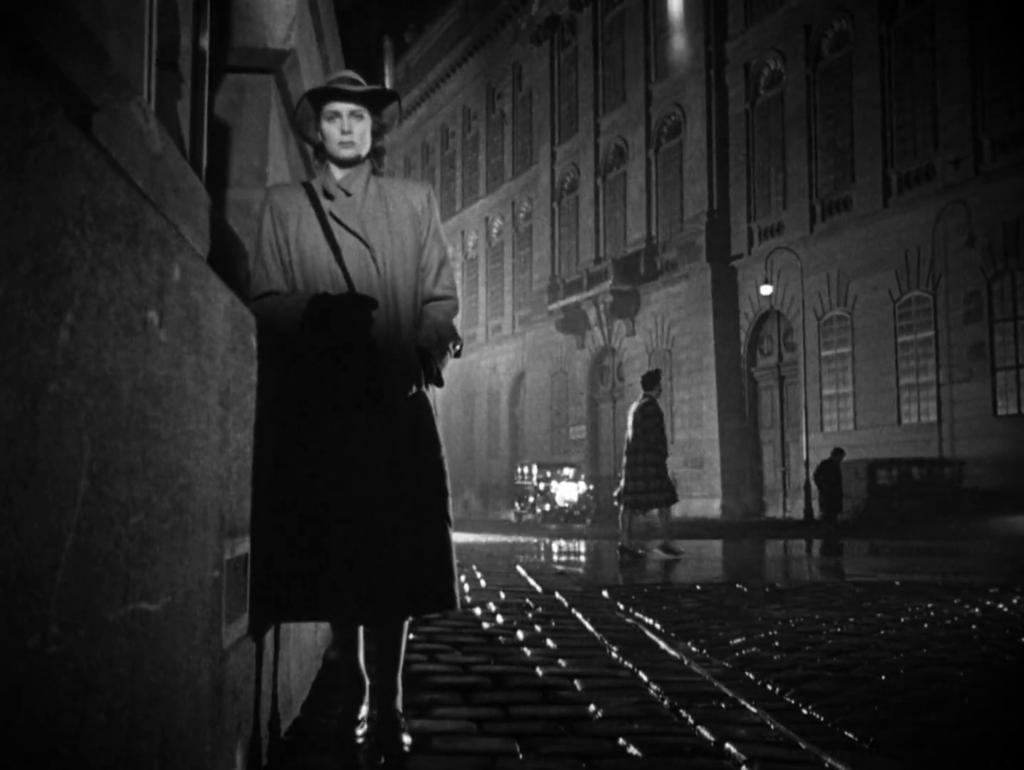
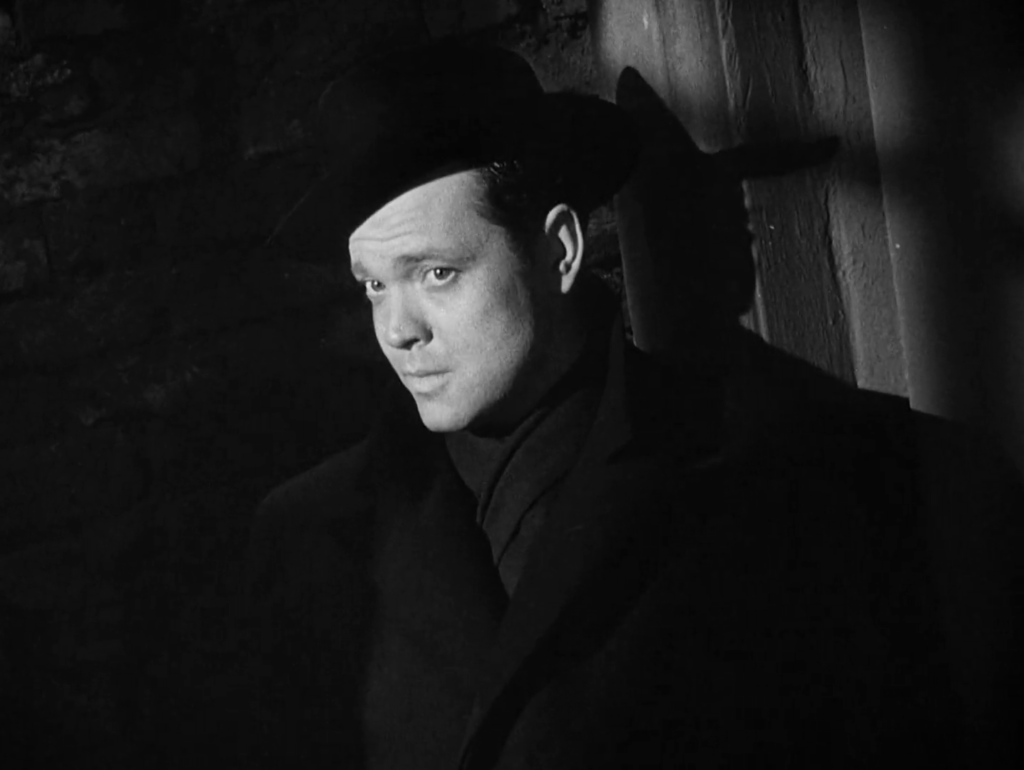
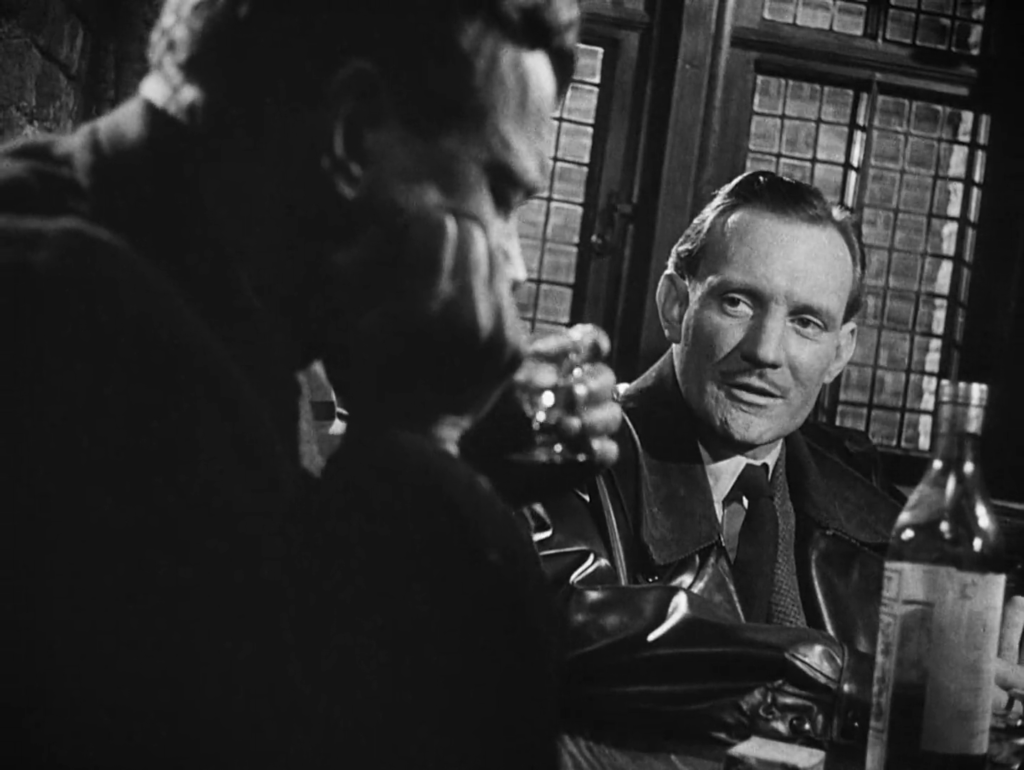
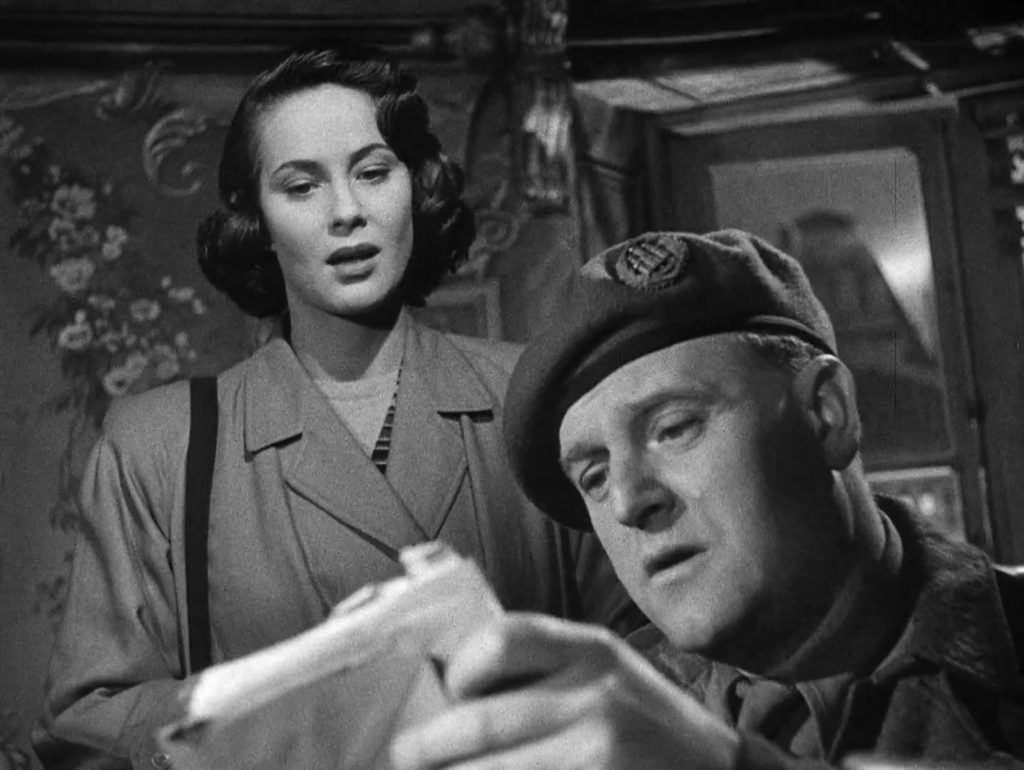
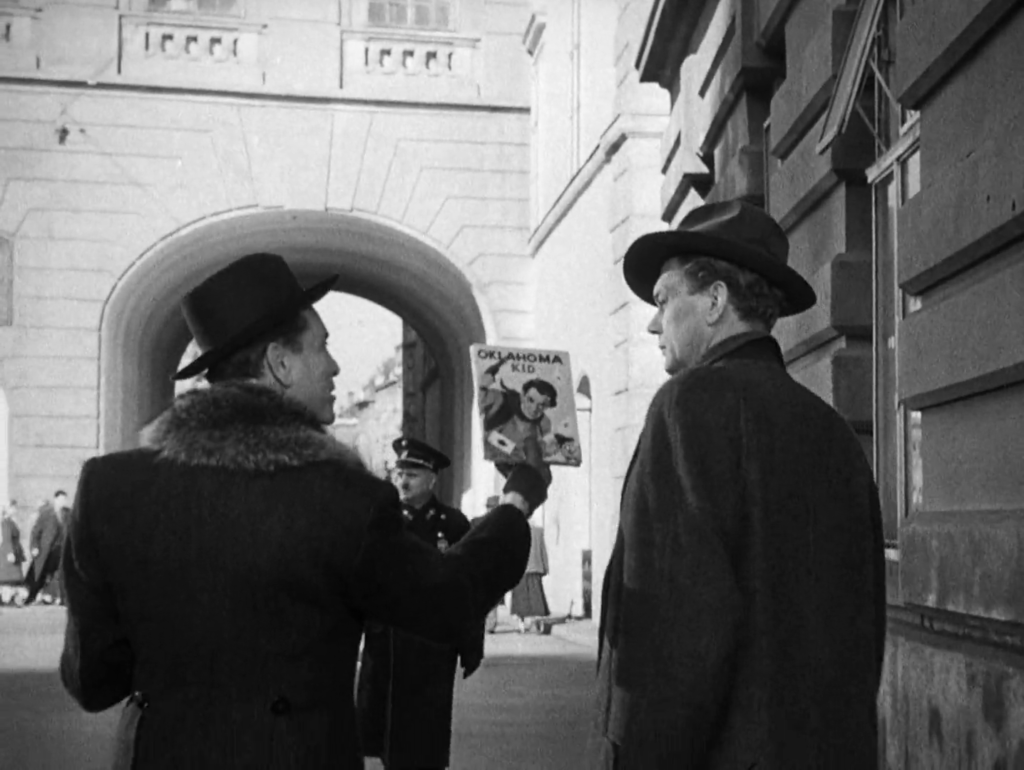
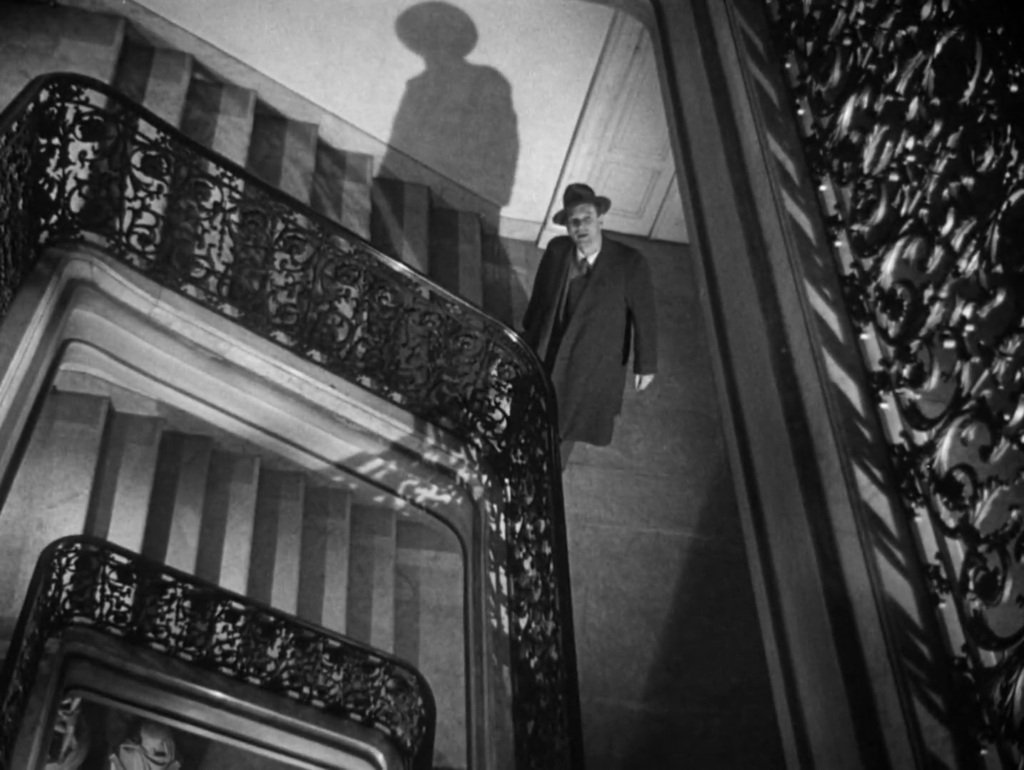
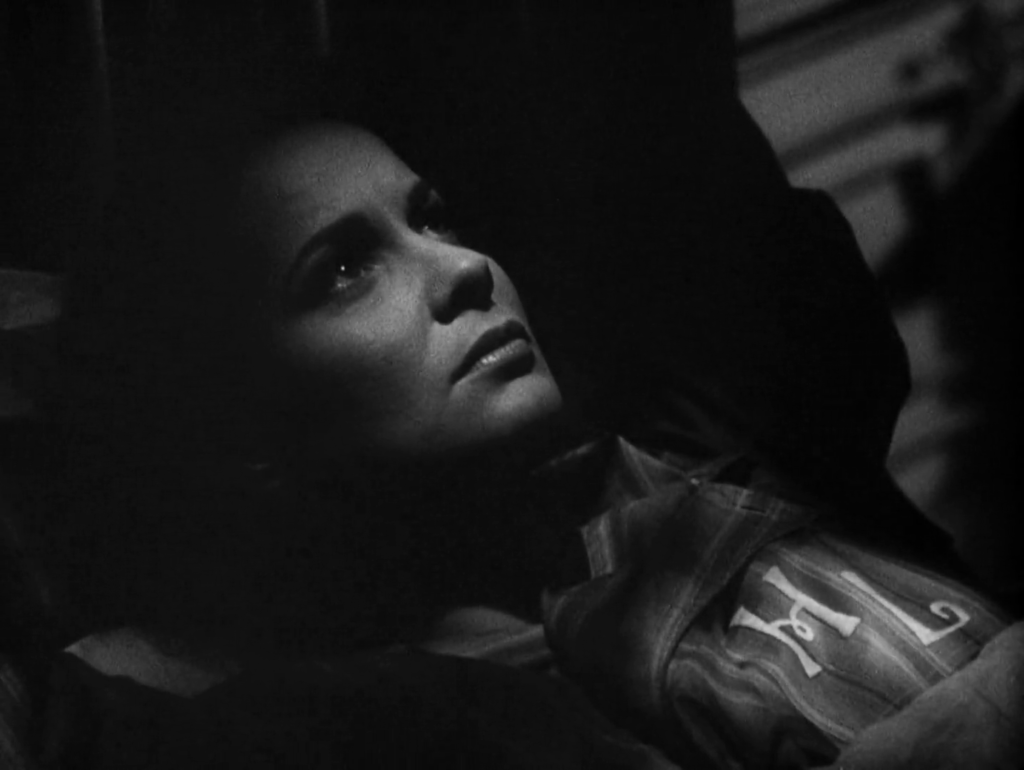
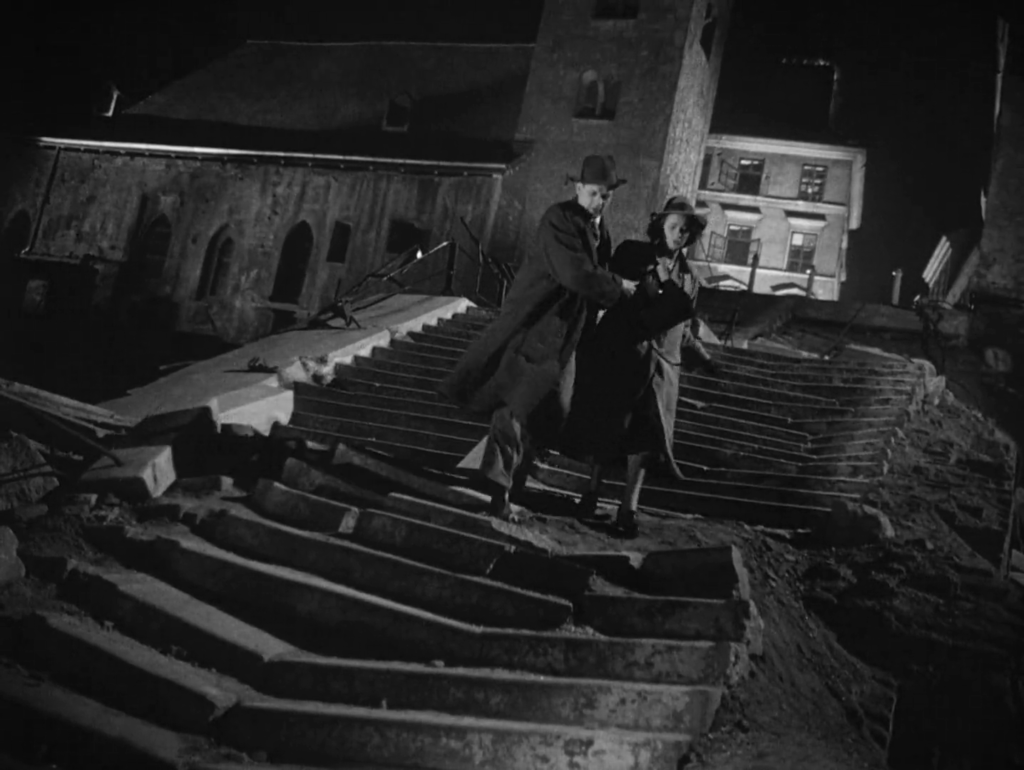
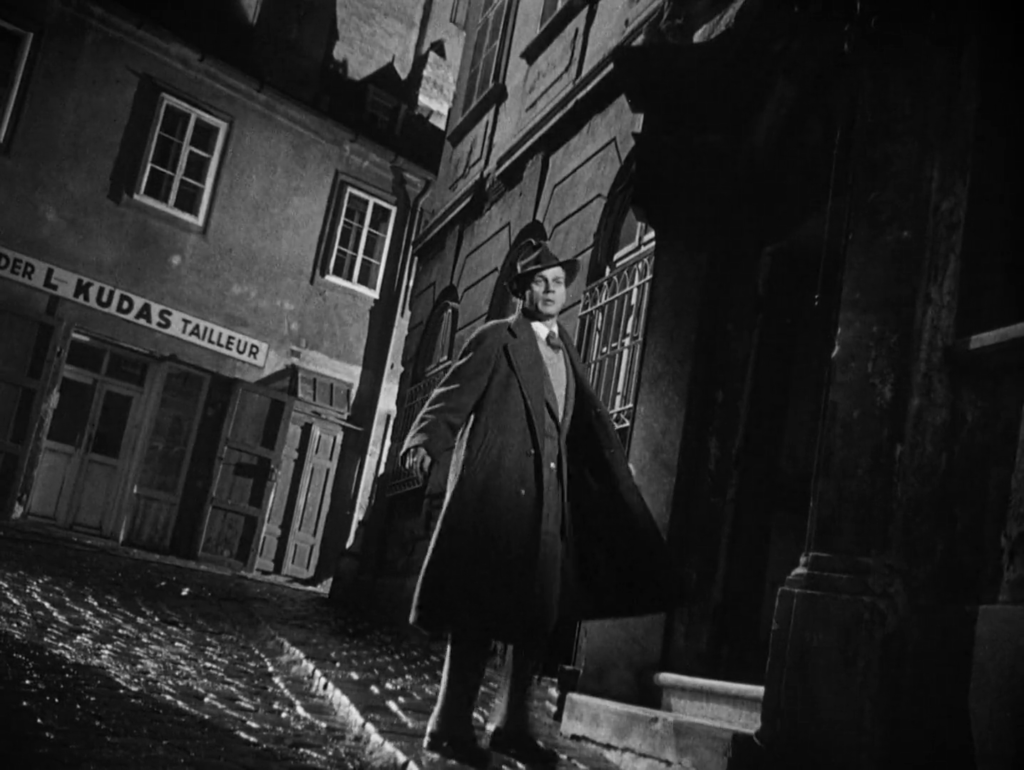
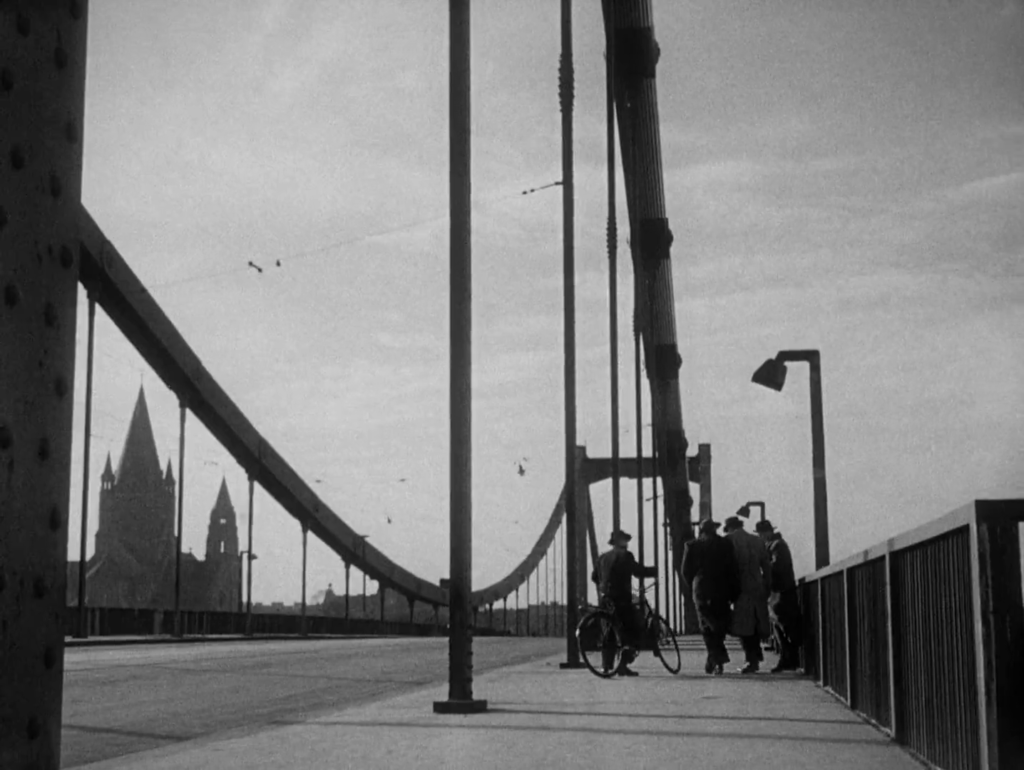
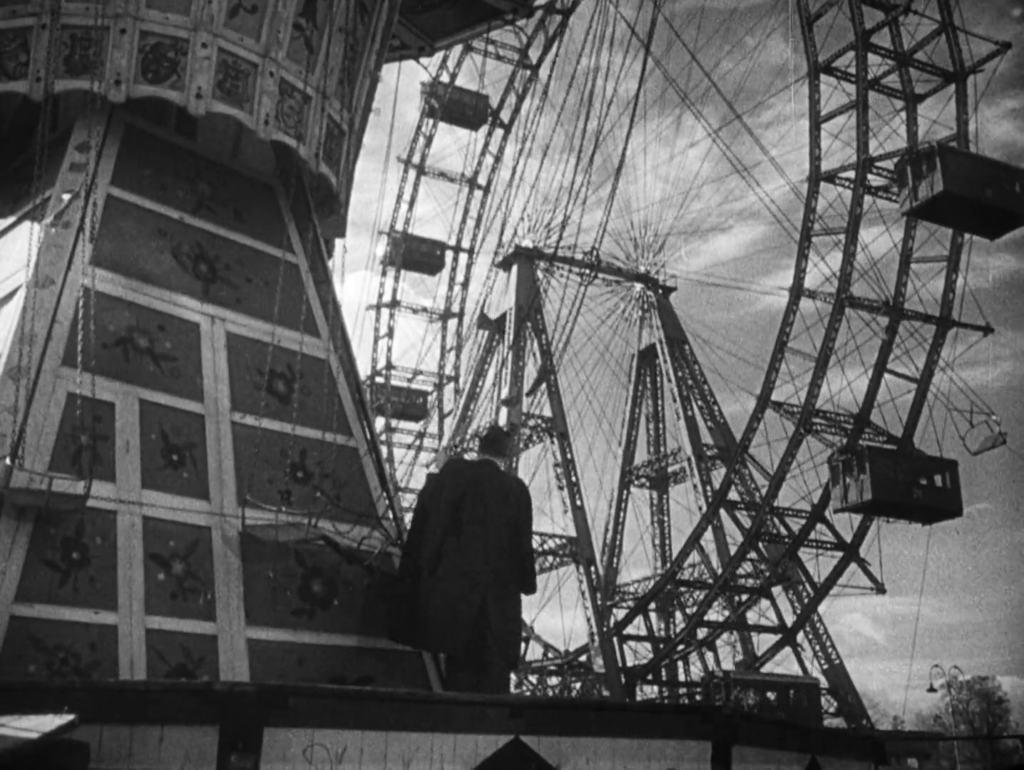
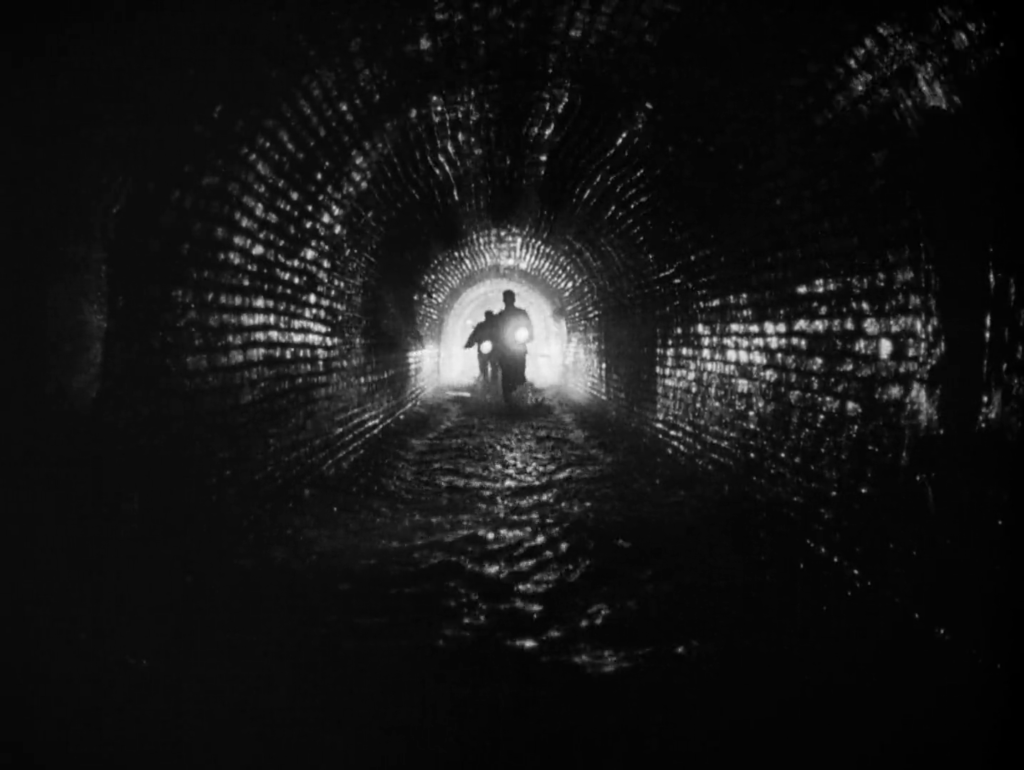
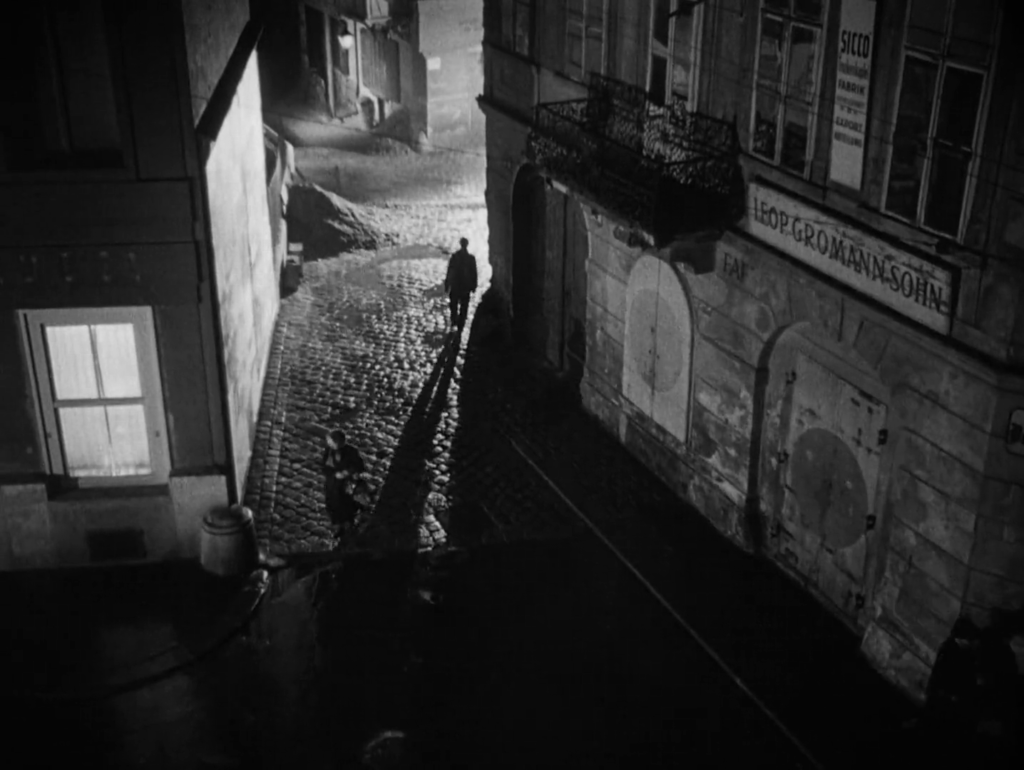
2 thoughts on “Third Man, The (1949)”
A no-brainer must- see, one that hods up quite well over multiple viewings. As per my post in ‘The ’40s-’50s in Film’ (fb):
“I knew him for 20 years – at least I thought I knew him.”
‘The Third Man’ (1949) [Netflix]: I was surprised by the reminder (thanks to IMDb) that Carol Reed directed fewer major feature films than I had thought. A number of those are fine achievements but it’s pretty easy to cite ‘TTM’ as my favorite. There simply isn’t another film that has its look and feel. Almost scene for scene, it’s both brilliant and disorienting. Graham Greene’s script is a rather complex extension of a simple idea – in other words, it has the makings of pure cinema. That’s realized by DP Robert Krasker (this may be his best film as well), creating a Kafkaesque world of off-kilter shots and shadows. And, of course, is there another film that has a zither score? Anton Karas’ significant contribution is immediately appropriate. I like the fact that the script has small doses of humor (“Is that what you say to people after death?, ‘Goodness, that’s awkward.’?” …As well, Orson Welles’ ‘cuckoo clock’ speech – which he improvised from another source – is the stuff of black wit.) The film’s characters – down to the minor and non-speaking roles – seem to be drawn with particular precision. Welles’ Harry Lime, for example – his easy charm notwithstanding – views the world in a depressingly fatalistic way, and more or less assumes that everyone else does too (“Nobody thinks in terms of human beings.”). Although, granted, given the time and place of the plot – post-WWII, just before the ushering in of the Cold War – maybe just about everyone in that atmosphere did share that view. With a cast at the top of its game, ‘TTM’ is in a class all by itself. And the last 10 minutes are GREAT!
Not my favourite Carol Reed thriller (Odd Man Out, 1947) but a brilliant film nonetheless and obviously a must see as a classic still revived, remembered and lauded today.
I must admit that I’m not a fan of the score finding it somewhat intrusive and unsuitable; too jaunty and upbeat for me. But, undeniably a must see.